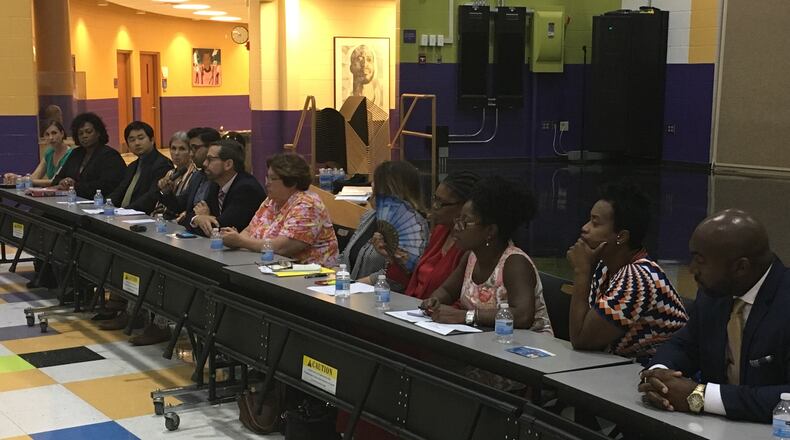RELATED: Who are the candidates for Dayton school board?
The event came just 10 days after Dayton Public Schools earned the second-worst performance index of Ohio’s 608 school districts on the state report card. Candidates had a variety of opinions on how to fix that.
Rhynard said DPS must rebuild trust by tracking whether its slew of new programs are effective. Jones called for DPS to be flexible enough to make annual changes rather than trying a 5- or 10-year plan.
Bradley said the board should set a more professional tone and be more student-focused in its decisions. Wick-Gagnet pushed for a layered response involving social services in schools and a focus on early-grade reading. Al-Hamdani said DPS needs to rebuild pride in the district, starting with leadership at the top.
RELATED: How did your schools do on the state report card?
Lacey, the lone incumbent in the race, focused on classroom teaching, saying he would support a tax levy if it helped pay to retain good teachers. Gallin talked about better teacher training and support, to change how teachers connect with students.
Most of the candidates were against DPS’ new policy allowing students to be eligible for sports with a GPA as low as 1.0. Gallin said she was offended, Bradley called it “totally wrong” and Wick-Gagnet said district leaders “failed.”
The discussion was almost entirely about the “message” the policy sent, with little comment on the functional impact — whether the mandatory tutoring and study tables would help low-performing student-athletes or not.
RELATED: Trotwood, Jefferson each have a “worst in state” score
Jones and Rhynard were more in the middle on the issue. Jones asked people to think of students without parents at home to push them, who might be impacted by positive mentors. Rhynard called it a “safety net” for the few students who needed it.
About the Author

